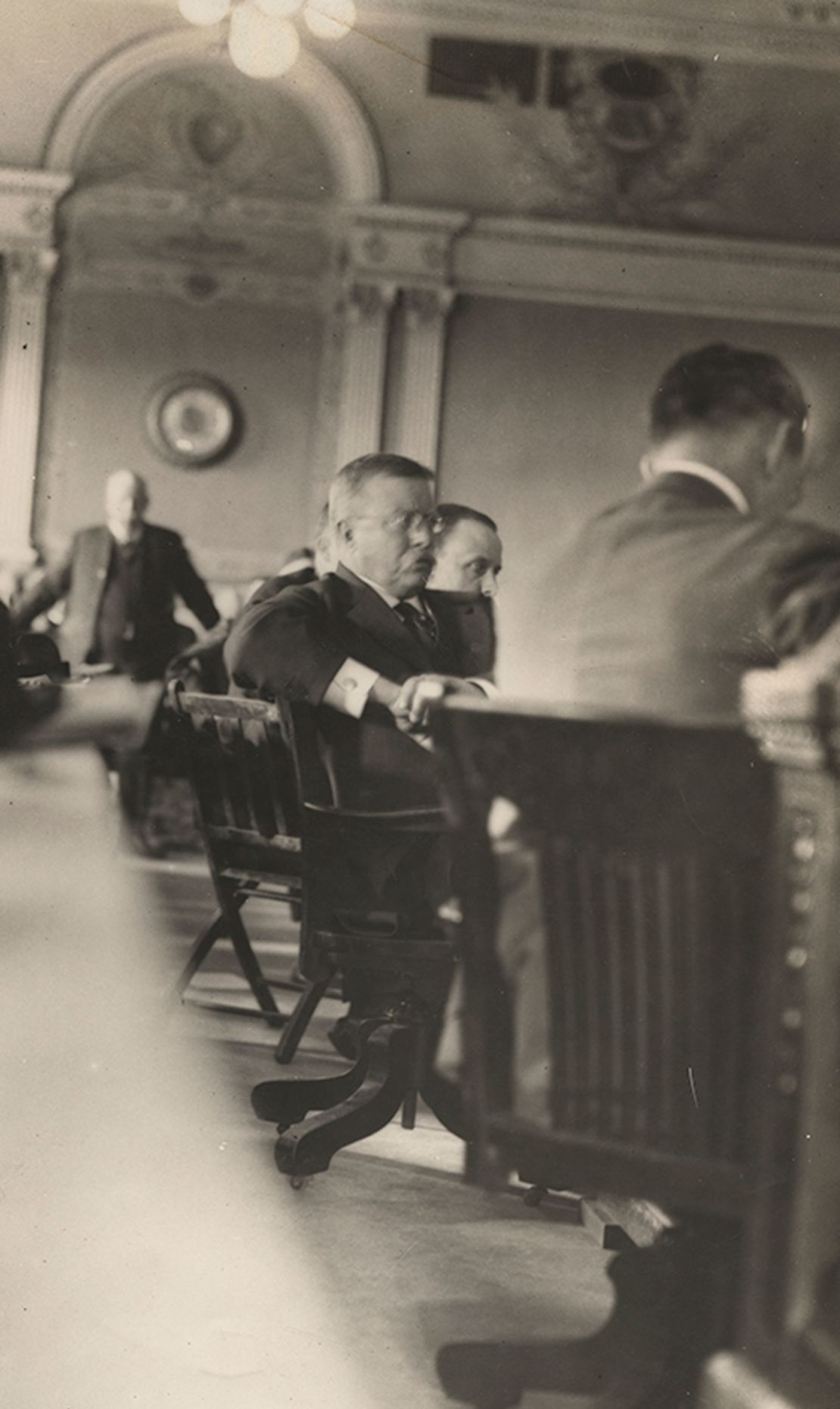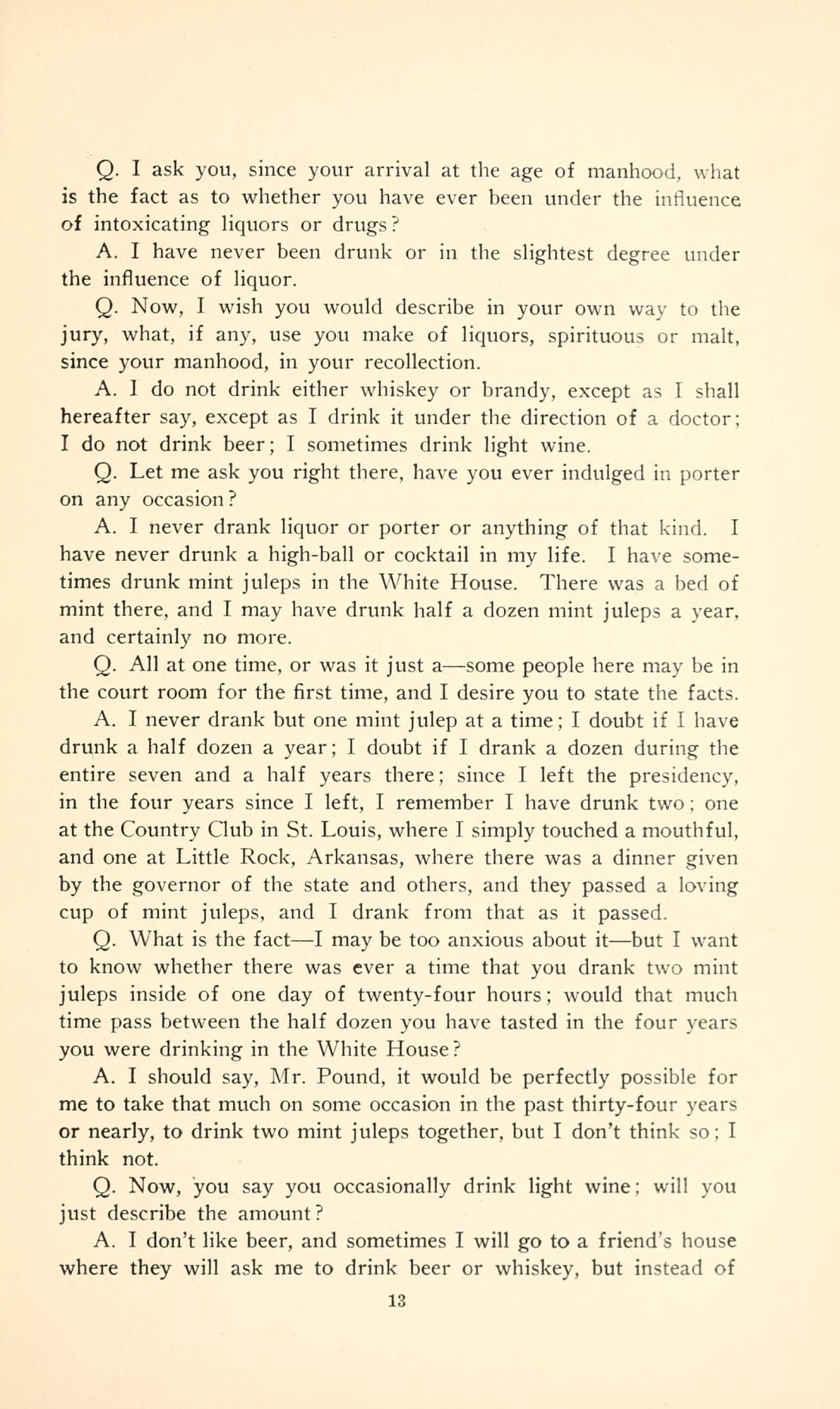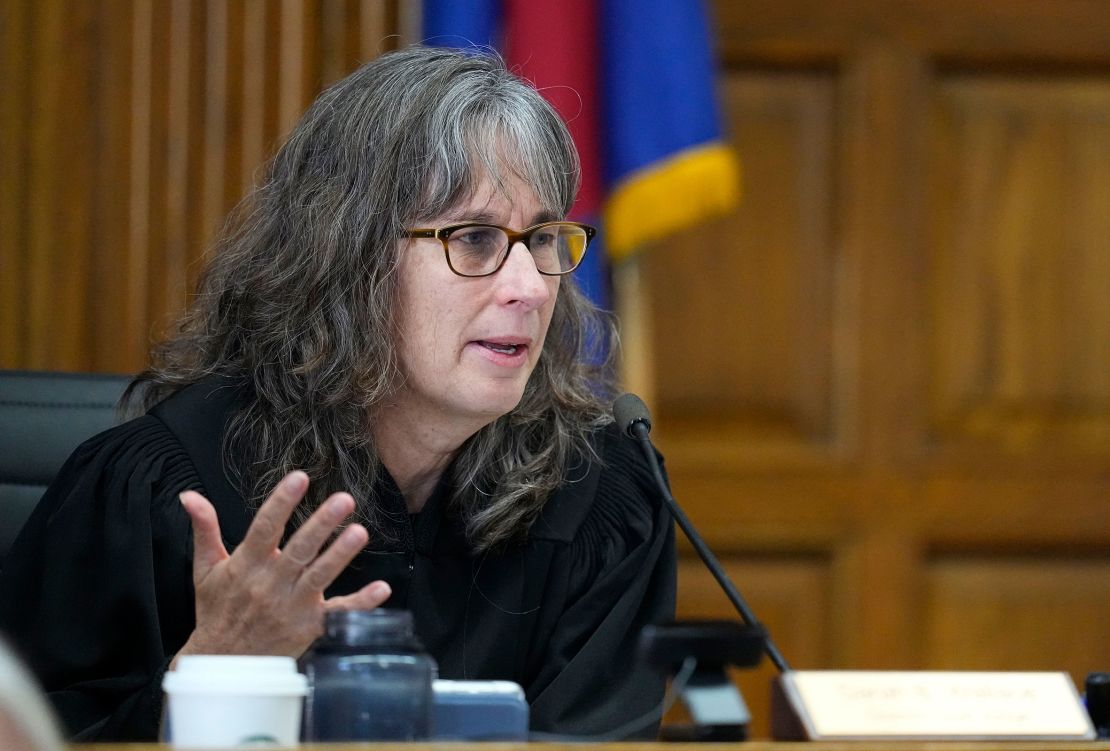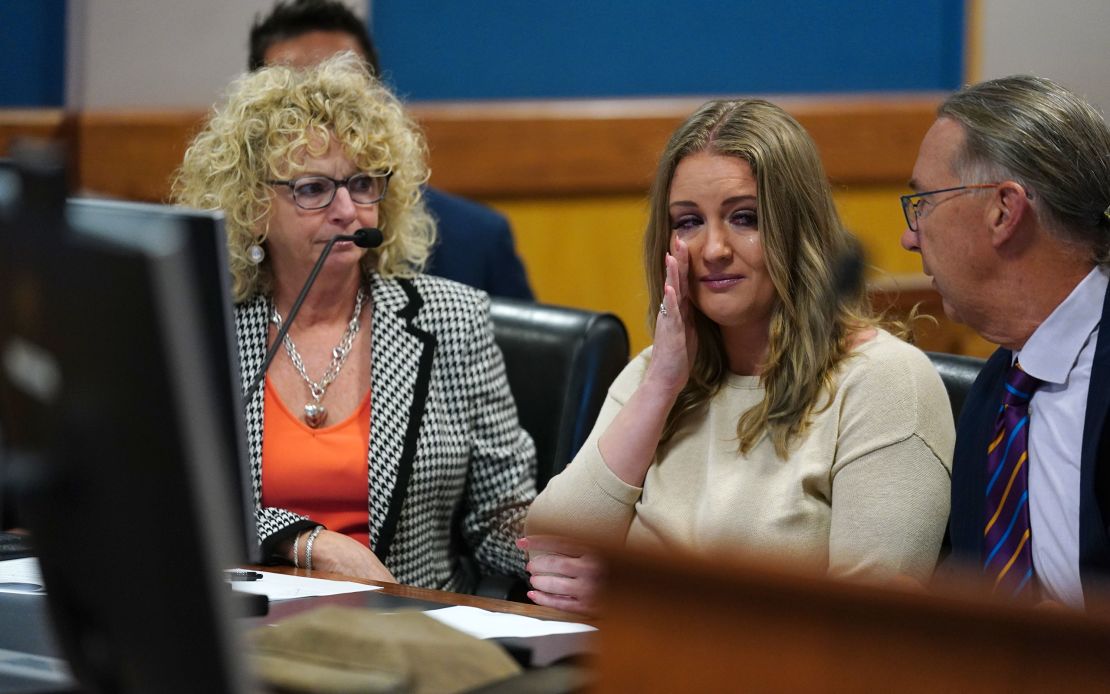A version of this story appeared in CNN’s What Matters newsletter. To get it in your inbox, sign up for free here.
CNN
—
Try to keep track of the galaxy of former President Donald Trump’s legal problems.
A judge in New York will hear Trump explain on Monday, under oath and in a witness box, why his company inflated the value of his assets when he was trying to secure loans.
A judge in Colorado heard testimony this past week from January 6, 2021, rally organizers as she considers whether Trump engaged in an insurrection against the US and thus should be disqualified from the presidential ballot in 2024.
A federal appeals court in Washington, DC, temporarily froze a limited gag order placed on the former president by the judge overseeing his forthcoming federal election subversion trial.
A federal judge in Florida signaled she may postpone the federal criminal trial against Trump that she’s overseeing – the one regarding his treatment of classified material that was, among other places, kept in a bathroom at his Mar-a-Lago resort – because how could his lawyers keep up with all of this?
Trump denies any wrongdoing in all legal matters and has pleaded not guilty in all of the criminal cases – which relate not just to his efforts to remain president by overturning the 2020 election and his treatment of classified material after his presidency but also to a hush-money scheme that may have helped him win the White House in 2016.
He alleges a “witch hunt” against him and says the varied legal actions are examples of election interference to keep him from the White House. But each trial has its own distinct storyline to follow.
Here’s an updated list of developments in Trump’s very complicated set of court cases, beginning with a quick historical note about former presidents as witnesses in their own defense.
When Trump takes the stand in his New York civil fraud trial Monday, it won’t be the first time a former president will have given testimony in his own defense in a lawsuit.
Teddy Roosevelt did it twice more than a hundred years ago, both when he sued a Michigan newspaper that accused him of being a drunk and later when he was sued by a fellow New York Republican whom Roosevelt had called a corrupt political boss.
Roosevelt won both cases. Trump, by contrast, has already been found liable for fraud by the judge in New York.
Those Roosevelt trials, separated by two years, were each sensational at the time, and they came after Roosevelt’s final campaign for the White House, when he placed second to Democrat Woodrow Wilson in 1912 after splitting with Republicans and running as a Progressive.
Trump, on the other hand, is very much still in the arena, and his legal strategy in a slew of civil and criminal cases is tied to his concurrent presidential campaign. He has argued that two gag orders – the one issued against him by a federal judge in Washington, DC, and the other by the civil trial judge in New York – hinder his ability to speak as a candidate.
The civil fraud trial, unlike Trump’s criminal indictments, does not carry the danger of a felony conviction and jail time, but it could very well cost him some of his most prized possessions, including Trump Tower.
New York Attorney General Letitia James brought the $250 million lawsuit in September 2022, alleging that Trump and his co-defendants committed repeated fraud in inflating assets on financial statements to get better terms on commercial real estate loans and insurance policies.
Judge Arthur Engoron has already ruled that Trump and his adult sons are liable for fraud for inflating the value of his golf courses, hotels and homes on financial statements to secure loans.
Trump’s adult sons, Donald Jr. and Eric, gave at-times tense testimony in which they deflected blame to accountants for inflating the company’s assets. A higher court in New York rejected Ivanka Trump’s attempt to delay Engoron’s order for her forthcoming testimony because she didn’t want to leave Florida to travel to New York while her children are in school.
The trial portion of the case is meant to assess what damages will be levied against Trump and how Engoron’s decision to strip Trump of his New York business licenses will play out. In addition to the high-profile testimony by Trump family members, the judge has also issued a gag order on the former president and on Friday expanded it to his attorneys, after Trump criticized a clerk of the court.
The government watchdog group Citizens for Responsibility and Ethics in Washington brought a case on behalf of six Colorado voters in an attempt to disqualify Trump from Colorado’s primary and general election ballots. They argue he is disqualified by the 14th Amendment of the Constitution’s “insurrectionist ban” by instigating the January 6, 2021, attack.
A judge in Colorado heard detailed testimony from legal scholars, January 6 rally organizers, Capitol Police officers and House lawmakers over the past week. Closing arguments are not expected until later in November.
Meanwhile, judges on Minnesota’s Supreme Court appeared skeptical of similar arguments in a separate case that held a hearing this past week.
In May, a federal jury in Manhattan found Trump sexually abused former advice columnist E. Jean Carroll in a luxury department store dressing room in the mid-1990s and awarded her about $5 million.
A separate civil defamation lawsuit will need to decide only how much money Trump has to pay her. That case is set for January 15 – the same day Iowa Republicans will hold their caucuses, the first date on the presidential primary calendar.
Trump has argued that as a former president he should have some immunity from the case.
In August, Trump was indicted by a federal grand jury in special counsel Jack Smith’s investigation into the aftermath of the 2020 election. The former president was arraigned in a Washington, DC, courtroom, where he pleaded not guilty.
The case is based in part on a scheme to create slates of fake electors in key states won by President Joe Biden.
In late September, Judge Tanya Chutkan rejected Trump’s request that she recuse herself from the case. Chutkan, a Barack Obama appointee, has overseen civil and criminal cases related to the January 6, 2021, insurrection and has repeatedly exceeded what prosecutors have requested for convicted rioters’ prison sentences.
Chutkan set the trial’s start date for March 4, the day before Super Tuesday, when the largest batch of presidential primaries will occur. The trial marks the first of Trump’s criminal cases expected to proceed.
Trump asked a federal appeals court to pause Chutkan’s gag order prohibiting him from talking about the case and has indicated he will take the issue all the way to the Supreme Court. The appeals court on Friday temporarily froze the gag order while it considers the request.
There are multiple other issues to hash out before March. For instance, Trump wants the case dismissed because he argues his actions in late 2020 and early 2021 fall under his presidential duties and make him immune to prosecution. Chutkan has not yet acknowledged the request.
Trump has been charged in Manhattan criminal court with 34 felony counts of falsifying business records related to his role in a hush-money payment scheme involving adult-film actress Stormy Daniels late in the 2016 presidential campaign.
The former president pleaded not guilty at his April arraignment in Manhattan.
Prosecutors, led by Manhattan District Attorney Alvin Bragg, accuse Trump of falsifying business records with the intent to conceal $130,000 in payments to Daniels made by former Trump attorney and fixer Michael Cohen to guarantee her silence about an alleged affair.
Trump has denied having an affair with Daniels.
The trial was originally scheduled to begin in late March 2024, but Judge Juan Merchan has suggested the date could move. The next court date is scheduled for February.
Fulton County District Attorney Fani Willis is using racketeering violations to charge a broad criminal conspiracy against Trump and 18 others in their efforts to overturn Biden’s victory in Georgia.
The probe was launched in 2021 following Trump’s call that January with Georgia Secretary of State Brad Raffensperger, in which the president pushed the Republican official to “find” votes to overturn the election results.
The August indictment also includes how Trump’s team allegedly misled state officials in Georgia, organized fake electors, harassed an election worker, and breached election equipment in rural Coffee County, Georgia.
Four of Trump’s 18 co-defendants have now pleaded guilty, avoiding jail time and agreeing to testify at later points in the trial.
The pleas by three former Trump attorneys, Sidney Powell, Jenna Ellis and Kenneth Chesebro, could be particularly important and turn these former allies into nemeses.
Ellis admitted wrongdoing in a tearful October court hearing, acknowledging her role in peddling election lies. Powell was at key White House meetings before the January 6, 2021, insurrection. Chesebro helped assemble slates of fake electors that Trump’s campaign orchestrated as it tried to undo election results.
Federal criminal court in Florida: Mishandling classified material
Trump has pleaded not guilty to 37 federal charges brought by Smith over his alleged mishandling of classified documents. Smith added three additional counts in a superseding indictment.
The investigation centers on sensitive documents that Trump brought to his Mar-a-Lago residence in Florida after his White House term ended in January 2021.
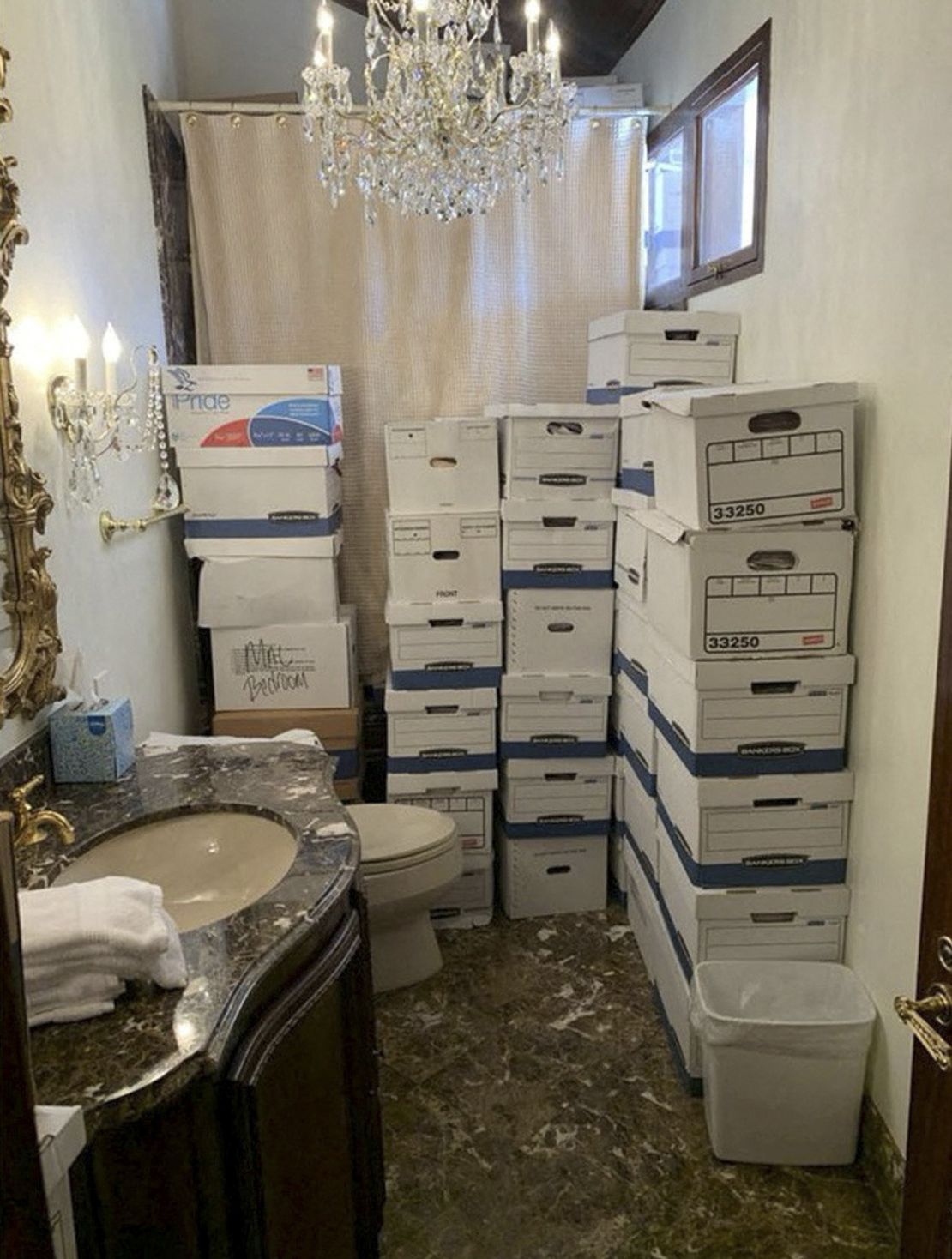
The National Archives, charged with collecting and sorting presidential material, has previously said that at least 15 boxes of White House records were recovered from Mar-a-Lago, including some classified records.
Trump was also caught on tape in a 2021 meeting in Bedminster, New Jersey, where the former president discussed holding secret documents he did not declassify.
Smith’s additional charges allege that Trump and his employees attempted to delete Mar-a-Lago security footage sought by the grand jury investigating the mishandling of the records.
The trial is not expected until May, after most presidential primaries have concluded, although the judge in the case has suggested she could delay things.
There are other cases to note:
Trump’s namesake business, the Trump Organization, was convicted in December by a New York jury of tax fraud, grand larceny and falsifying business records in what prosecutors say was a 15-year scheme to defraud tax authorities by failing to report and pay taxes on compensation provided to employees.
Former Trump Organization Chief Financial Officer Allen Weisselberg pleaded guilty to his role in the tax scheme. He was released after serving four months in jail at Rikers Island.
Weisselberg testified at the New York civil fraud trial in October, but didn’t recall much about the creation of the financial statements at the core of that trial.
Several members of the US Capitol Police and Washington, DC, Metropolitan Police are suing Trump, saying his words and actions incited the 2021 riot.
The various cases accuse Trump of directing assault and battery; aiding and abetting assault and battery; and violating Washington laws that prohibit the incitement of riots and disorderly conduct.
Some of the lawsuits have been put on hold while a federal appeals court considers whether Trump had absolute immunity as the sitting president.
Former top FBI counterintelligence official Peter Strzok, who was fired in 2018 after the revelation that he criticized Trump in text messages, sued the Justice Department, alleging he was terminated improperly.
Trump sat for a deposition under oath in the lawsuit in October.
Trump’s former lawyer Cohen sued Trump, former Attorney General William Barr and others, alleging they put him back in jail to prevent him from promoting his upcoming book while under home confinement.
A federal judge threw out the lawsuit in November 2022. District Judge Lewis Liman said he was empathetic to Cohen’s position but that Supreme Court precedent bars him from allowing the case to move forward.
Cohen, however, recently testified against Trump in the New York civil fraud lawsuit.
Trump-filed lawsuits: The New York Times, Mary Trump and CNN
The former president is suing his niece and The New York Times in New York state court over the disclosure of his tax information.
A New York judge dismissed The New York Times from Trump’s lawsuit regarding disclosure of his tax returns and ordered Trump to pay the newspaper’s legal fees. Trump is still suing his niece Mary Trump for disclosure of the tax documents. She had tried to sue him for defrauding her out of millions after the death of his father, but the suit was dismissed.
